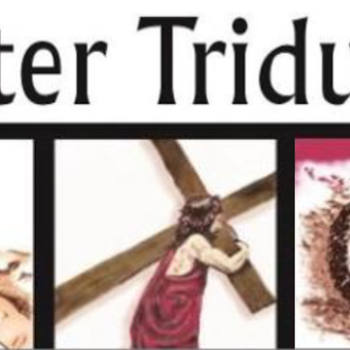Now Featured at the Patheos Book Club
The Dave Test
A Raw Look at Real Faith in Hard Times
By Frederick W. Schmidt
Book Excerpt: Foreword
Fred Schmidt is a thoughtful, compelling, insightful theologian who has done all the necessary homework of his craft. But that is not what interests us here. What interests us here is that Fred has a brother. His name is Dave. He was surgeon. He had a brain tumor that finally killed him. Fred, in what is given to us here, is deeply engaged with his brother, Dave, in being with him, in being with him in his walk to death, in reflecting on and learning from that companionship of candor and loss.
The title of the book, The Dave Test, refers to a set of questions that have emerged from and shaped that intense companionship and its work. They are questions about getting real and being truthful with the wretchedness of death and loss. To pass the Dave Test is to face reality, loss, and grief without denial or phoniness or cover-up, to face it in all of its uncompromising demand. The chapters of this small but important book are reflections, one at a time, on the questions that constitute the Dave Test. What comes through here is mature faith that is shaped, informed, and judged by this deep love for a brother who majored in honesty and who for that reason eschewed all the phoniness that passes for care and faith and hope among us.
It strikes me that what Fred outlines here is a concrete embodiment of the drama of the book of Job. That sufferer was famously caught between the reality of loss that could not be denied and the easy, conventional explanations offered by the "friends" who voice the settled conventions of faith who are, in fact, not interested in the bodily reality on the ground. The work of the book of Job is an adjudication of that tension been the lived reality and the explanatory conventions. Job refused to lie or to yield, even when caught up by the tsunami of the creator God.
Fred sees himself and especially Dave in the same contestation. Only here it is not the rigor of self-assured covenantal rigidity of Job's companions. It is, rather, well-meaning friends and their practice of reassurance. The pseudo-faith they mediate is a practice of denial that wants to explain away the bodily reality that is in front of them. As a result the church, in this reading, stands exposed by its clichés, it certitudes, and its easy assurances that are popularly mouthed among us. But of course it is not simply the church; the same practice of denial permeates popular culture and its assumed well-being that can be generated by the chase of some commodity that may take many forms. But all such commodity solutions are designed to conceal bodily reality; in that much-repeated portrayal, everyone is happy, everyone is young, everyone is in good health or soon can be by a procedure or a product, world without end! I suppose it is no surprise that the church is tempted to imitate such a seductive culture.
In the end, however, Fred's presentation is not primarily concerned to indict church or culture. It is rather to share with us in quite concrete form what he has learned that could make a difference as we walk with other sisters and brothers who face such loss. He has learned what is always again to be relearned, because it is so contradictory of our common propensity and our usual practice. Friends that effectively stand by Dave love freely; acknowledge their own mortality and so need not be Promethean in their manner; are available to those in need, to God, and to themselves; are vulnerable, and speak with candor. Of course! But it is so hard! It turns out that this lived reality, reported here with such poignancy, is the core wisdom of our faith tradition:
- That truth makes free . . . not happy, not easy, not successful, but free!
- That perfect love casts out fear . . . well, maybe not all fear, but most of it. Dave is less fearful with Fred there!
The book is an uncommon account of what our society does not want to know and cannot remember, but what we need to know in bodily ways if we are to live the life and die the death that is given to us.
I read this book with great attentiveness because it rings true. More than that, I read it with great attentiveness because I also have a brother, Ed. Ed lives with kidney failure, and his doctors have given him a limited time for his life. Ed, moreover, is like Dave, no bull-shitter. He can spot a phony a mile away. He is rooted in faith, but he is totally impatient with phoniness. For me every reference to Dave sounded like Ed, and I can see myself in Fred's place. But then, every reader who pays attention will make something of a like identity as stand-in for Fred with some Dave who is at risk.




